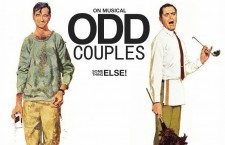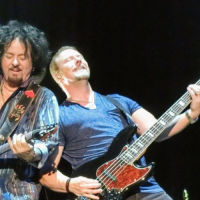When The Long Run arrived on September 24, 1979, the Eagles had been silent for some three years — an eternity in that era. Don Felder says there’s a reason.
“We kept trying to raise the bar higher, and higher with each record — so that not a single lyric or a note or a guitar lick went on those records that wasn’t as good as, or better than, the last record,” Felder tells us in an exclusive Something Else! Sitdown. “It was the final product that was the utmost and highest concern.”
But, as history makes clear, there was more to it than that. A time of transition preceded The Long Run, as Randy Meisner left in the wake of the Eagles’ biggest success to date, 1976’s Hotel California. Now with Timothy B. Schmit, the group continued incorporating more of the rock influences that had propelled this album’s predecessor to multi-platinum heights. But, at 16 million in U.S. sales alone, Hotel California might, in fact, have set the bar too high.
They were coming off a project that featured three Top 20 singles, including a pair of charttopping, Grammy-winning triumphs. The Long Run, meanwhile, would feature only a single No. 1 Grammy winner, in Glenn Frey’s “Heartache Tonight,” and a pair of Top 10 songs in title track and Schmit’s lonesome ballad “I Can’t Tell You Why.” It managed less than half the sales of Hotel California.
Still, The Long Run moved a whopping seven million copies in the U.S. alone. Such was the state of the Eagles’ success that this was somehow considered a disappointment.
All of that pressure, coupled with what looked to be a creeping malaise, conspired to nearly end the Eagles.
Yes, The Long Run had its moments. Frey and Don Henley shared vocals on the R&B-soaked title track, and Felder played a key role in the radio favorite “Those Shoes.” Joe Walsh’s “In the City,” however, had earlier been featured in the soundtrack for The Warriors — perhaps the most obvious hint that the Eagles were running out of creative stream as their amazing run of 1970s-era triumphs drew to a close. They’d also been unable, Felder says, to find a suitable feature item for Frey beyond the throwaway “Teenage Jail.”
“When we got towards the end of The Long Run, we realized that Glenn had nothing to sing on the record except this one song called ‘Teenage Jail,'” Felder tells us. “So, we looked at all of the songs that I had, and all of the songs that Timothy had, and Henley too, trying to find something that we could finish for Glenn. And we just had nothing in his genre. So we called Bob Seger, and Bob had started about 60 or 70 percent of ‘Heartache Tonight,’ which was perfect for Glenn. So we got together, and J.D. Souther, Don, Glenn and Bob finished writing that, ran into the studio and recorded that for Glenn — because it was the strongest thing for Glenn’s representation on the record. We couldn’t put out a record without Glenn singing a hit on it.”
The Long Run was also slowed by second-tier offerings like “King of Hollywood,” “The Greeks Don’t Want No Freaks” and the truly embarrassing “Disco Strangler,” though the Eagles finally righted things with the album-closing “Sad Cafe,” a cinematic narrative that would stand as the last new music from the Eagles for some 15 years.
Still, the way they rallied around finding “Heartache Tonight” hinted at a musical bond that would one day be reawakened for an early-1990s reunion of this lineup. And, at its best, The Long Run still found a way to provide glimpses into what made the Eagles great back then.
“What we did in that band, it was a very unusual circumstance to have five guys and each one brought such an abundance of talent,” Felder adds. “Everybody in that band would write, sing and play. Anyone in the Eagles could, and did, front their own band. So, it was unusual to have so much talent in one band. We took everyone’s strongest suit, in order to make the best records we could.”
- How Deep Cuts on ‘Music From Big Pink’ Underscore the Band’s Triumph - July 31, 2023
- How ‘Islands’ Signaled the Sad End of the Band’s Five-Man Edition - March 15, 2022
- The Band’s ‘Christmas Must Be Tonight’ Remains an Unjustly Overlooked Holiday Classic - December 25, 2016



